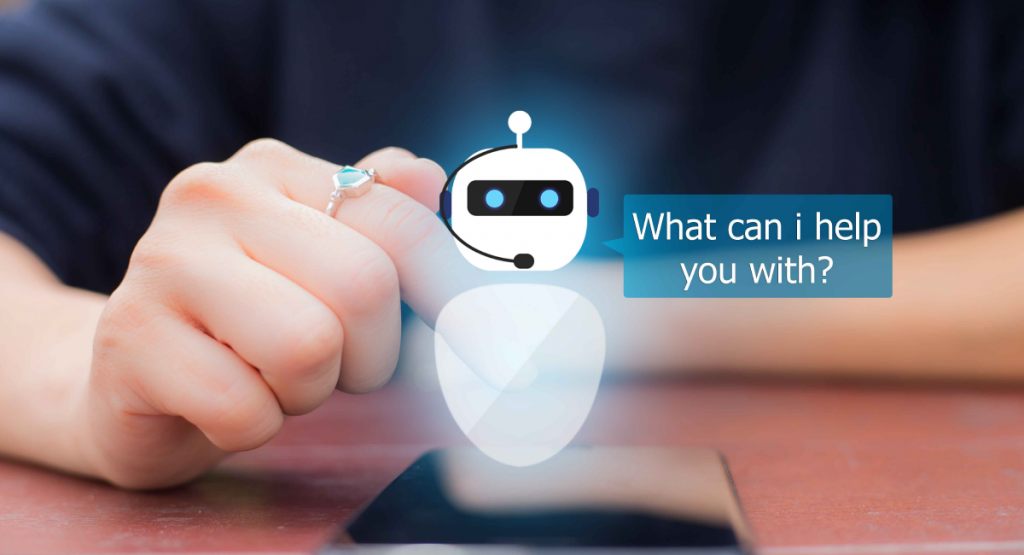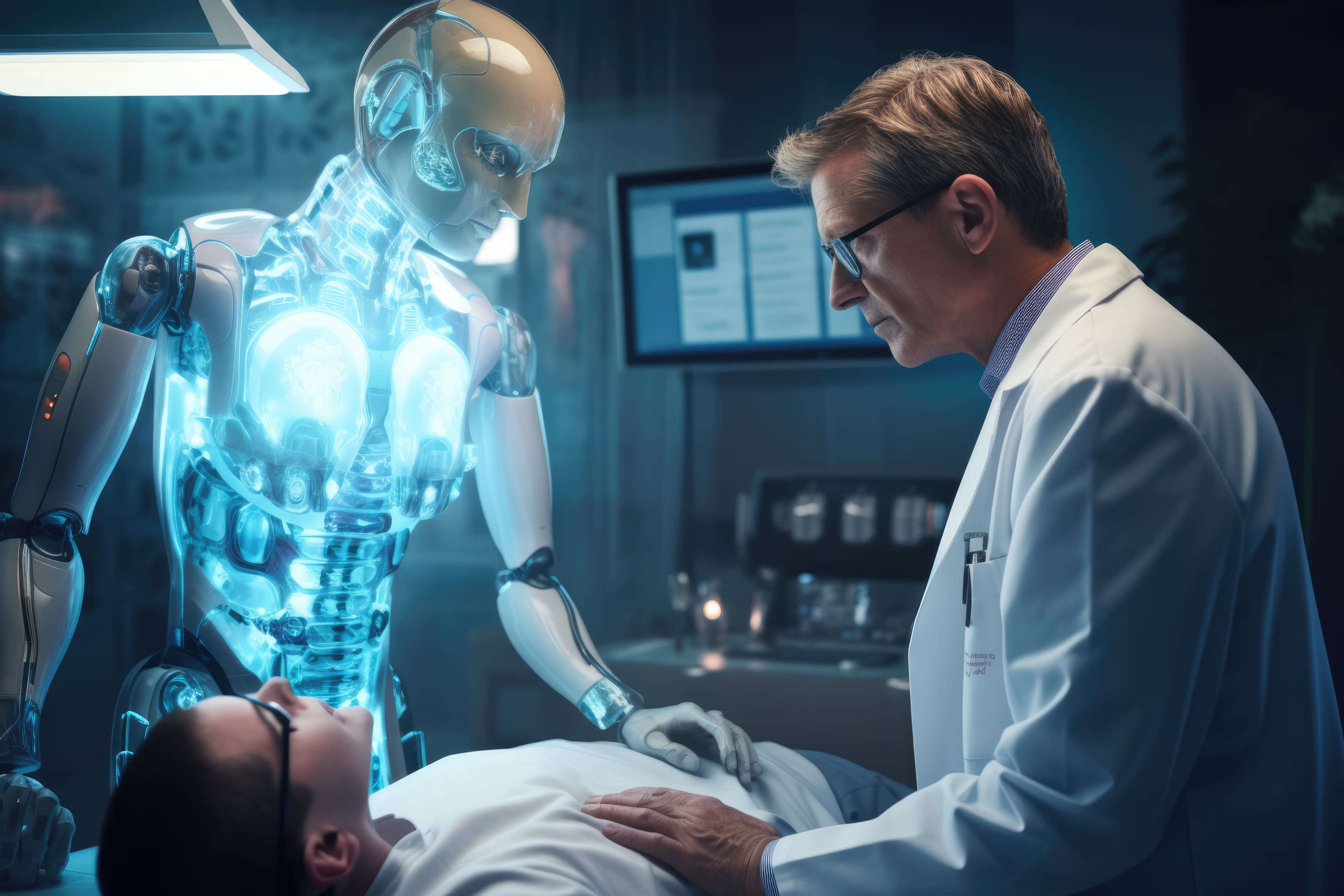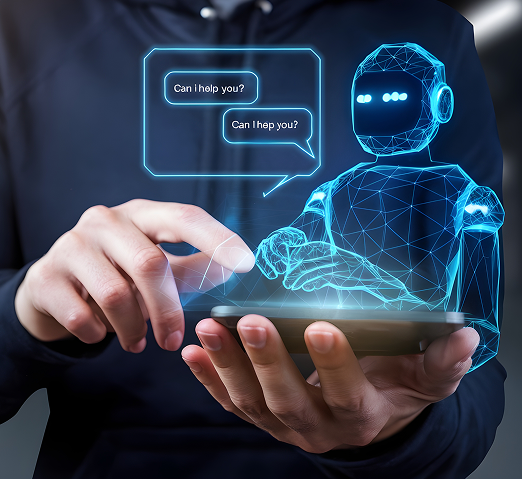The Future of Work: How AI is Changing Jobs, Not Just Taking Them
16 Mar, 2025

There’s a lot of noise around AI “taking our jobs.” But the truth is far less dystopian and far more complex. Yes, artificial intelligence is reshaping the workplace—but not with the sole intention of replacing humans. In fact, what it’s really doing is rewriting the rulebook on what work means, where it's done and who gets to do it.
So instead of panicking, maybe it’s time to ask a more useful question: How exactly is AI changing jobs? And more importantly, what should we be doing to adapt, evolve, and even thrive?
Let’s talk about real, human-first, no-fear-mongering answers.
Job Disruption vs. Job Evolution
To be fair, the anxiety isn’t unfounded. Repetitive, rule-based jobs—think data entry, basic accounting, telemarketing—are already being automated. These are roles where AI excels: fast, consistent, error-free, and immune to Monday blues.
But here’s the nuance: for every role AI disrupts, it also creates new ones.
Think about it:
● Who manages the AI systems?
● Who trains the models?
● Who makes the ethical decisions about AI use?
● Who writes the prompts, curates the data, and interprets the insights?
These are jobs that didn’t even exist five years ago. Now they’re essential.
In other words, AI isn’t making humans obsolete. It’s changing what “human value” looks like in the workforce.
The Rise of Hybrid Roles
One of the biggest shifts we’re seeing is the emergence of hybrid roles—jobs that blend human creativity and decision-making with machine efficiency.
A few examples:
- AI-Assisted Marketers: They use tools to analyze behavior, run A/B tests, and even generate copy—but the final strategy, voice, and storytelling still require a human mind.
- Data-Driven HR Managers: AI helps identify patterns in hiring, bias in job descriptions, or early signs of attrition—but emotional intelligence is irreplaceable in real conflict resolution.
- AI Prompt Engineers: A role born from generative AI. These professionals fine-tune the questions and frameworks that get the best answers from large language models. It’s part tech, part psychology, part storytelling.
In short: the jobs of the future are augmented, not annihilated.
The Human Skills That Just Got More Valuable
As AI takes over the mechanical tasks, the spotlight shifts to uniquely human abilities—skills that machines can’t replicate (at least not yet).
Here’s what’s skyrocketing in demand:
1. Creativity
Whether it’s brand storytelling, product design, or even user journey mapping, creativity remains
an irreplaceable asset. AI can assist, but not originate—yet.
2. Critical Thinking
With AI flooding us with information, the ability to filter, interpret, and challenge that data becomes essential.
3. Emotional Intelligence
From leadership to client service, the ability to understand and manage emotions is core to building trust. No algorithm can replicate human empathy.
4. Adaptability
Change is the only constant now. Workers who can learn quickly and pivot seamlessly are gold.
5. Ethical Judgment
AI decisions—especially in law enforcement, healthcare, and finance—need human oversight. Who decides what's fair? Safe? Biased?
These aren’t “soft” skills anymore. They’re survival skills.
New Jobs Created by AI
Let’s put some names to the evolution. Here are a few roles that barely existed a few years ago:
● AI Ethics Officer
● Data Annotation Specialist
● Prompt Engineer
● Machine Learning UX Designer
● AI Policy Analyst
● Virtual Assistant Coordinator
● AI Cybersecurity Analyst
And the list keeps growing.
SEO tip: These job titles have seen a rise in search volume in the past 18 months. Writing content around them not only ranks well but connects with career-changers and industry professionals actively looking for direction.
What This Means for Companies
If you’re a business owner or team leader, here’s the big insight: reskilling your workforce will be more cost-effective than replacing it. Companies like IBM and Accenture are investing millions in internal upskilling programs. Why? Because it’s not just a talent war anymore—it’s a talent shift. Invest in people who are curious, adaptable, and eager to learn. Build teams that think with machines, not against them.
And What About You?
Whether you’re a student, a professional in mid-career, or someone facing redundancy due to automation—here’s the truth: You’re not powerless.
Here’s a practical roadmap:
● Audit Your Current Skills: List what you do that can’t be done by an algorithm.
● Identify Gaps: Are you comfortable with digital tools? Can you interpret data?
Communicate clearly?
● Start Small: Free courses on platforms like Coursera, edX, and LinkedIn Learning are a goldmine.
● Build a Digital Portfolio: Show how you work with AI, not just what you know about it.
● Stay Curious: Follow AI thought leaders. Read blogs. Experiment.
● No one’s asking you to code the next ChatGPT. But being able to use it wisely? That’s already a superpower.
Final Thought: AI Isn’t the End of Work—It’s the Next Chapter
We’ve survived the Industrial Revolution, the Internet Boom, and even remote work becoming mainstream. AI is just another leap. Scary, yes. But also full of opportunity.
If we stop viewing technology as a threat and start treating it as a tool, the question isn’t “Will AI take my job?” It becomes: What can I now do that wasn’t possible before?
Because that’s where the future is headed. And if we’re smart about it, it’s a future where humans and AI don’t compete—they collaborate.



.jpg)
